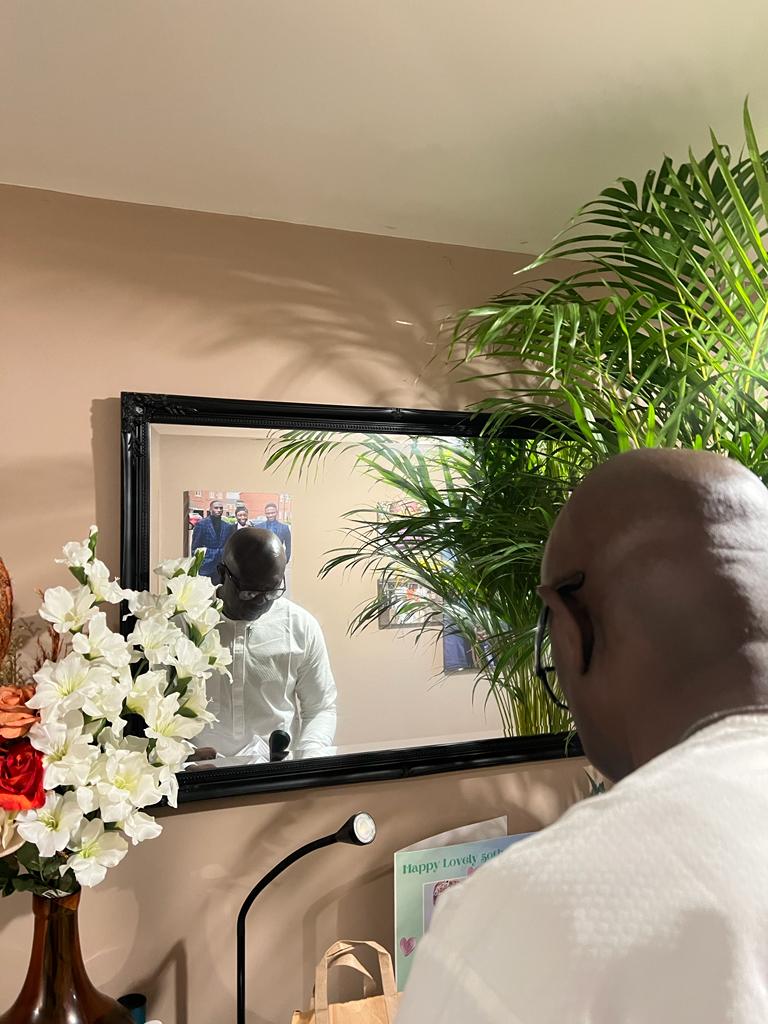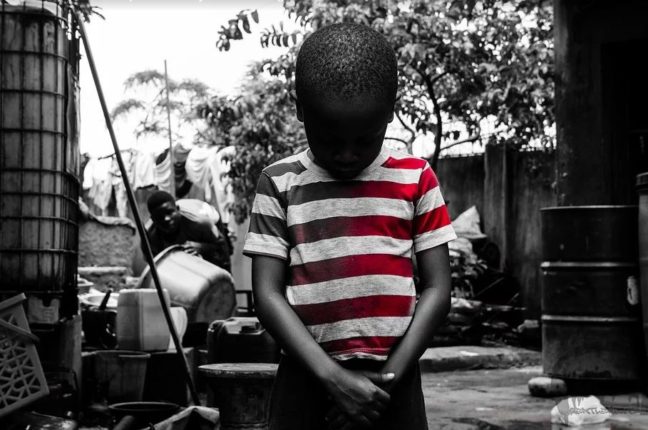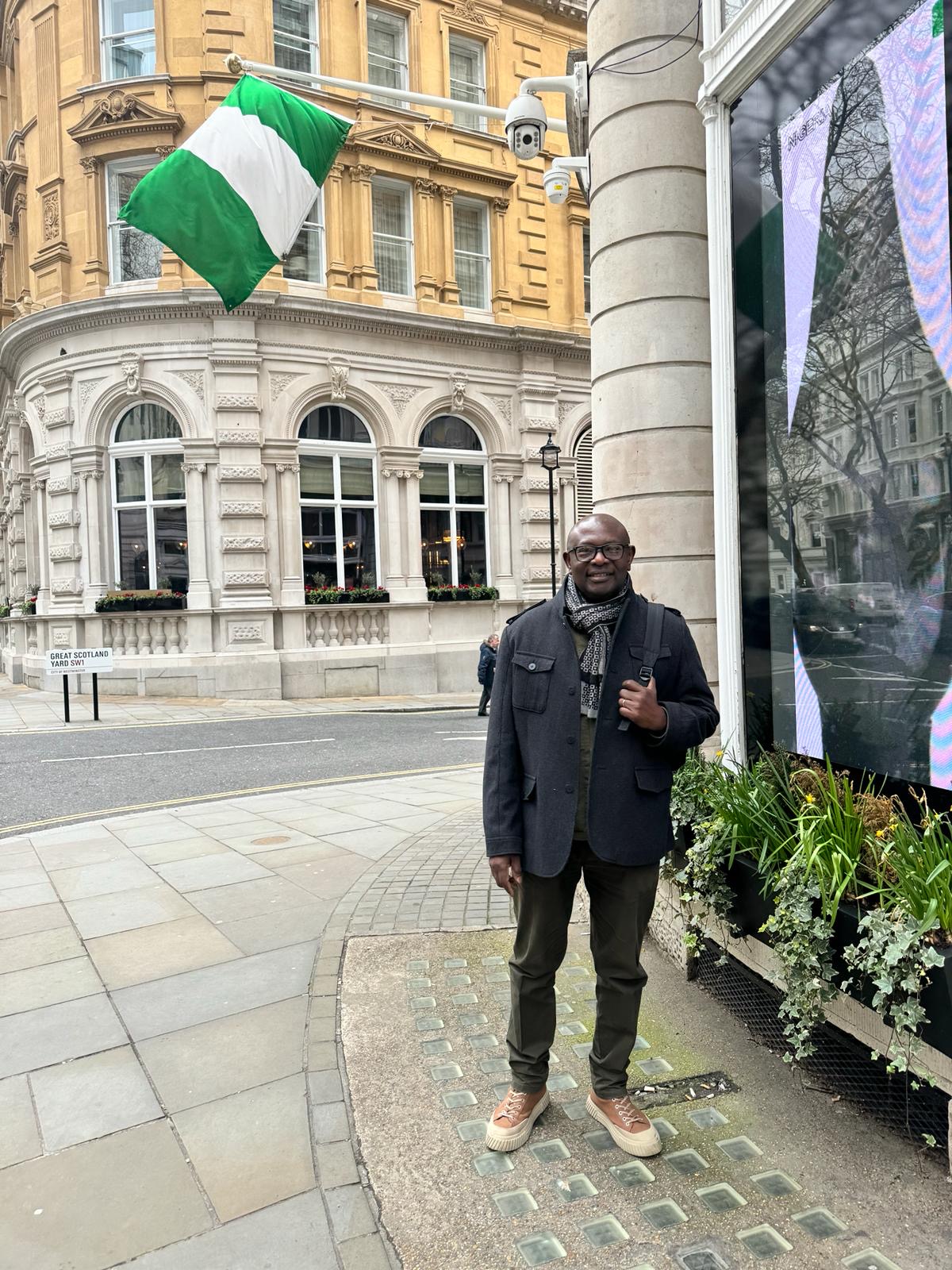By Morak Babajide-Alabi
Many times in the past I have been asked by foreigners what I conceive is wrong with Nigeria, the largest black populated country in the world. The questions were not routinely out of the blues, but after interaction with them and the disclosure that my root is in Nigeria. They always seize the opportunity to “drill” me and expect that I will have answers to explain all the problems of the country.
It is difficult for me to conceal the fact that my origin is in Africa. I may think I have perfected the art of speaking through my nose and sound a little different from an African, but it just needs a little prodding before I revert to my mother tongue. Every so often, it is the mispronunciation of some words, unnecessary emphasis on some and complete disregard of the phonal sound that gives me away. Notwithstanding when I manage so many sentences without giving my ancestry away, I cannot escape explaining the origin of my names.
I am one of the few individuals from Nigeria (Africa) with no foreign names. For whatever reason, which I am grateful for, my father did not give my siblings or me foreign names. However, I find it tasking having to explain (like other Africans in the diaspora) the origin of my name every time I introduce myself in a gathering or meet someone for the first time. It is not, however, every foreigner that is interested in the names, as some do not even care to retain it the first time. I am always happy to recite the names and also spell out in the phonetic alphabet.
I am used to the odd question of “where are you originally from?” I do not take offence at this, as I am conscious of the fact that the question is usually prompted by my names. It would have been out of place asking a black or any other colour “Mr James” where he is originally from. In the same vein, I am aware that on certain occasions when I had applied for jobs, a few racist recruiters might have left me out by the sound of my names. Merely stating this and not a fact. And to be fair, some might take interest in encountering the man with the high-sounding names.
In 2015, David Cameron submitted a very pretentious question: “Do you know that in our country today: even if they have exactly the same qualifications, people with white-sounding names are nearly twice as likely to get callbacks for jobs than people with ethnic-sounding names?” He was not expecting an answer to the question. He knew the answer to be in the affirmative. However, give it to Cameron; he started the name-blind recruitment “revolution.” The success of this is a subject for another discussion, especially in this era of nationalism and BREXIT.
I found out that most of the people who had followed up on the origin of my names are genuinely interested in starting a discussion. Every time I am in this position, especially in a social gathering, I find myself explaining the history of Nigeria. Interestingly, most people I encountered have heard interesting things about Nigeria before. Some would recall the brilliant Nigerian(s) they attended university or college with or an elegant dressing Nigerian colleague a few years ago.
Most middle-aged foreigners (British, especially) know of the country by the numerous Nigerians that flooded the English Premier League some years back. They know the likes of Nwankwo Kanu, Jay Jay Okocha, Celestine Babayaro, John Mikel Obi, Yakubu Aiyegbeni, Obafemi Martins and Joseph Yobo. They represented themselves and the country of birth very well. They were the core full-bloodied compatriots who travelled thousands of miles to make an impact in the game. And their successes rubbed off on Nigeria.
A set of people that are interested in hearing more about the origin of my name are the people that encounter the country only on the British Broadcasting Corporation (BBC). The only information they are exposed to is the image of biting poverty in the most populous African country. They possess a dismal picture and formulated opinions based on the reports they are exposed to on the BBC. On encountering them, you could see their struggle in matching the picture with the reality of the fact that you speak clean Queen’s English and are well presented. Some usually can’t help themselves as they ask: “How many cows do you have?” And of lately it is “are the terrorists still in power?”
I do struggle to explain these questions, especially when they are asked in a very contemptuous manner. How do I identify the terrorists they are asking about? I have to be cautious in my answers, as they might have been referring to the terrorist-leaders in government. The Nigerians who are elected by fellow citizens but stay in government to terrorise those who voted them in. They could satirically be referring to my leaders as terrorists based on the views formed by the poverty of Nigerians as reported by the BBC.
My answer could go both ways. Affirmative, the terrorists are still in power. The terrorists Boko Haram guys are still wreaking horror on the masses, especially the residents of the North East. They are still kidnapping and chasing residents out of their homes and villages, while the government looks on in confusion. The security agents are bewildered by the actions of the terrorists, and they do nothing but take to their heels anytime the terrorists come to town to play.
On the other hand, the “elected terrorists” have no clue of how to defeat their religious counterpart terrorists. They have toyed with the idea of compensating them, grant them scholarships and maybe, political appointments. As they dilly dally on these options, they have left the field open for the “other” terrorists to kill, maim and render the citizens homeless. The “elected terrorists” are directly more concerned with the religious terrorists than the innocent citizens that are roaming the forests. They care less about the thousands of children that have no access to education or health facilities on the back of the activities of the “other” terrorists.
You can imagine my dilemma every time I have to explain questions about Nigeria. The last sets of foreigners that I pray to avoid are the knowledgeable ones, that know a lot about the country. They know about the struggles for independence, the challenges, the civil war and the abundant natural resources present in the country. These are the involved ones, as no explanation can answer their questions or their disappointments. These individuals had high hopes in a country with many abilities becoming a power to reckon with. They had good dreams for a country they had no stake in. They inform you of how the name Nigeria connoted development, beacon of hope, wealth, leadership and prosperity.
They frequently look at me with intent inquiring eyes, hoping I have answers that will explain why Nigeria is out of step with the world expectations. They could see my confusion and instead they pity my situation as I struggle to explain how elected leaders work against the development of the country. They do not know if they should believe me when I say the leaders of my country have no love but for themselves and their immediate family. Rather than provide answers, I waffle on how my leaders deliberately mismanage the resources of the country to hoard individual wealth. Their eyes as wide as anything, they wonder if they should believe me that leaders are elected to make personal wealth and not for the country.
They habitually wear me out with questions on how Nigeria has lost her way. How do you explain that, though there are resources and capabilities in the country, the leaders at all levels promote conflicting agendas? They often shake their heads in pity and walk away from me. It is just unexplainable.
As written for the Diaspora Matters column of Sunday Vanguard, March 8, 2020.







